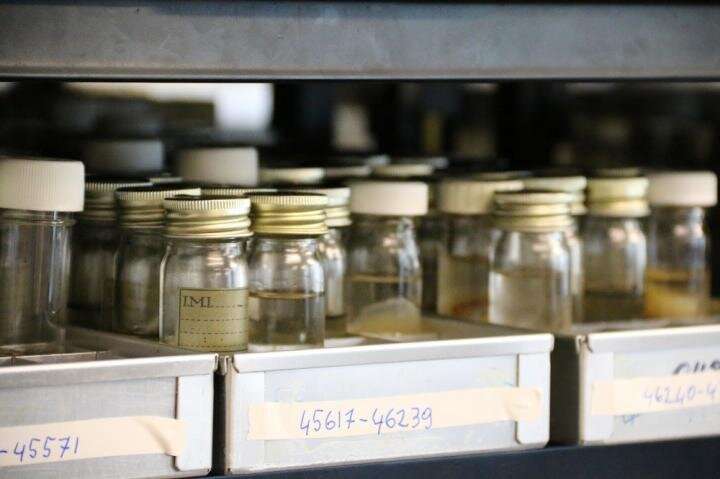Cryotechnology to freeze key UK crops as part of project

British scientists are using cryotechnology that will keep key UK crops secure at very cold temperatures in a bid to improve sustainability and yield.
The UK Crop Microbiome Cryobank will facilitate the sustainable yield improvement of six major crops including barley, oats, oilseed rape, potato, sugar beet and wheat.
The five-year project is being spearheaded by CABI, along with researchers from Rothamsted Research, Scotland’s Rural College (SRUC) and the John Innes Centre.
The UK-CMCB will provide a facility for the scientists to source data and samples for their work, including living microbial material.
Microbiomes are all the microbes present associated with the crop plant, whether they are present in the leaves, seeds and stems or in the bulk soil around the roots.
Scientists behind the project say a beneficial microbiome results in a healthy plant and an improved crop yield and better-quality food.
Dr Matthew Ryan, Genetic Resource Collection at CABI, said preserving crop microbial samples would provide researchers a 'unique snapshot in time'.
"If you like, it is a ‘Noah’s Ark’ of UK microbes from crop systems and one that has many potential exciting uses,” he said.
"We will generate a representative, valuable and unique resource from key UK crop systems that will become a vital resource for scientific researchers for generations to come.
“We will be using UK-developed cryotechnology that uses liquid nitrogen to keep the samples secure at very cold temperatures."
Dr Tim Mauchline, plant microbiologist at Rothamsted Research, added there was a 'clear need' to increase food production while reducing reliance on chemicals.
“Soil health is particularly important. If we can better understand the function of microbes present in our soils we can use this information to help farmers produce sustainable crops.
"It is imperative that biological solutions are found to help ensure the UK’s food security."
The UK-CMCB project started in October 2020.








